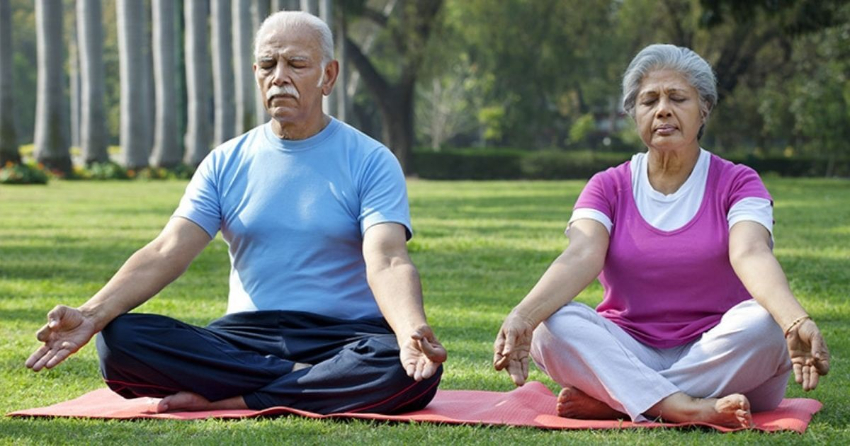
The door of Ch’an is entered by Wu. When we meditate on Wu we ask “What is Wu?” On entering Wu, we experience emptiness; we are not aware of existence, either ours or the world’s.
E-MAIL: admin@relaxmid.com
As we age, maintaining cognitive health becomes increasingly important. Older adults are concerned about memory lapses, lack of focus, reduced mental processing speed. While there’s no single remedy to prevent these changes, research suggests that meditation can be a powerful tool for improving focus and supporting cognitive health in ageing populations.
Meditation isn’t just for stress relief, it increases mental clarity, memory retention, and brain function. In this article we explore how meditation can aid in surfacing the difficulties of aging through focusing and cognitive longevity.
These are natural changes that happen to the brain with aging: A reduced plasticity to form new connections, and reduced blood flow, which may localize to parts of the brain that all of us want to have and use, that of the cognitive network. Older adults are more likely to have conditions such as dementia or Alzheimer’s disease, but even without these illnesses many people have trouble concentrating or remembering information.

Meditation fixes these problems by clearing your mind, alleviating stress, and giving rise to neurogenesis (new growth of brain cells).
It is essential to focus on daily things and make decisions. One of the greatest benefits of meditation is training the brain to maintain attention despite constant distractions, an aptitude that especially becomes harder to attain with age as multitasking progressively becomes more complicated.
Meditation has many benefits that affect brain health and when you have an older adult in your life, this is beneficial.
The brain’s ability to form and reorganize neural connections is called neuroplasticity, and it can happen in adults. Meditation encourages Neuroplasticity by:
Emotional well-being is closely tied to cognitive health. Chronic stress and anxiety can impair memory and focus, but meditation helps:
Meditation increases cerebral blood flow, which means that this oxygen and nutrient flow supplies the brain at optimum levels. It all helps to support memory, focus, and making decisions.
Studies have provided compelling evidence of meditation’s role in enhancing brain health:
Older adults can benefit from various meditation practices tailored to enhance focus and cognitive function:
Simply pay attention to the present moment, but without criticizing thoughts and sensations. It teaches the brain not to get distracted.
It promotes positive emotions and reduces stress, which indirectly supports cognitive health.
It helps to expand the mind body connection and promotes awareness of physical sensations, acting as a band aid to the mental clutter.
Such simple practices such as counting breaths, or focusing on inhalation of exhalation, increase concentration and calm the mind.
It harnesses imagery to get older adults mentally engaged while using creativity and memory.

Starting and maintaining a meditation practice doesn’t have to be complicated:
In addition to focus and cognitive health, meditation offers a range of benefits that enhance the overall quality of life for older adults:
Ageing doesn’t have to mean declining focus and cognitive health. Meditation can help older adults maintain good attention, memory, and brain function by becoming part of daily life. Scientific research shows that this practice is based on hard science with a holistic approach to keeping your brain sharp and healthy.
It’s not just a tool for stress or relaxation—it’s a major ally against cognitive decline. Experience the power of meditation to increase focus, memory and brain health by starting your practice today.
